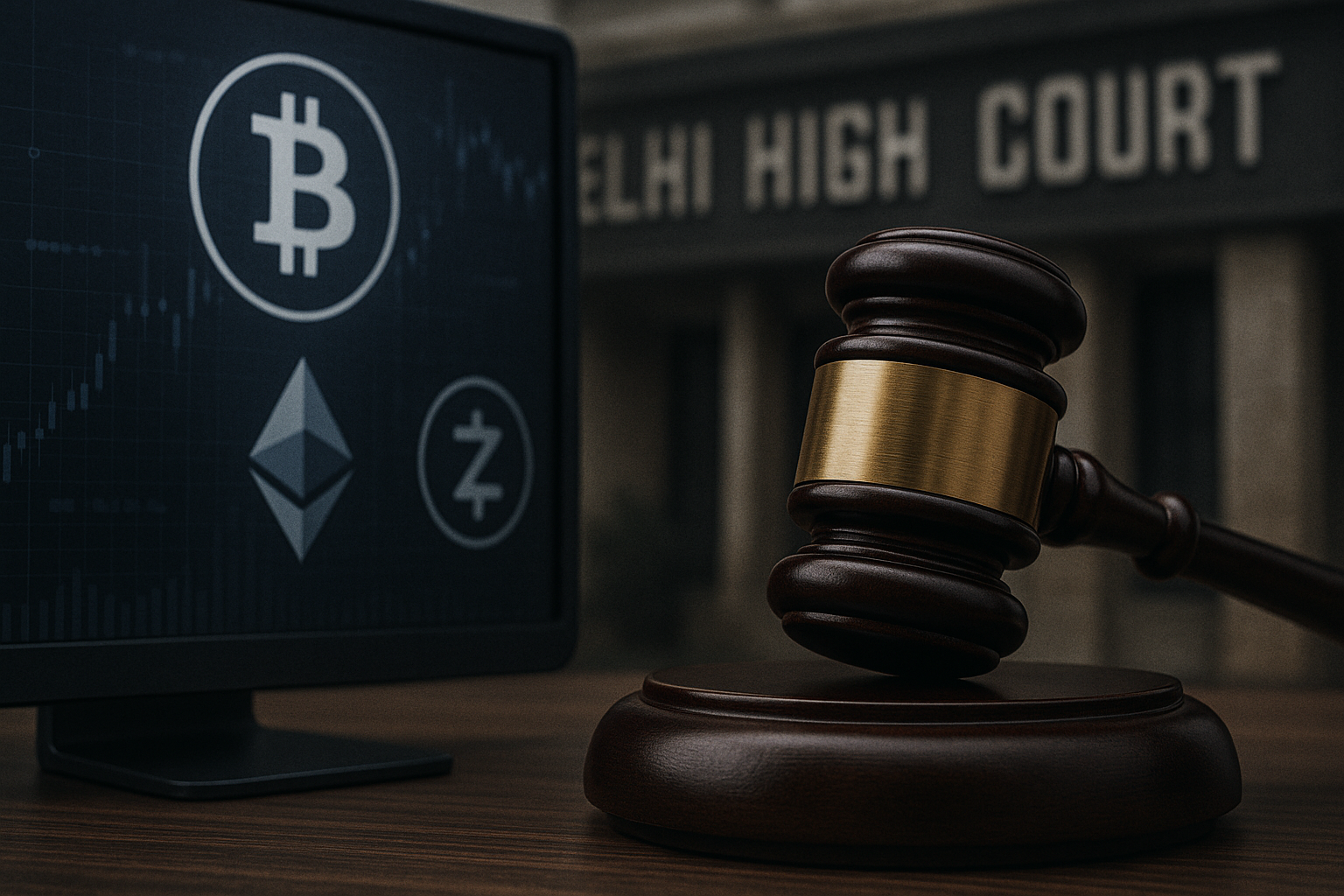New Delhi, July 15, 2025 — The Delhi High Court has denied bail to Umesh Verma, the principal accused in a large-scale cryptocurrency scam involving the now-defunct Pluto Exchange. The ruling marks a critical stance by the judiciary on the misuse of digital assets and their broader implications on financial stability.
Allegations and Case Background
Verma allegedly duped 61 investors by promising 20% to 30% monthly returns on cryptocurrency investments. These assurances continued even after digital currencies were derecognized in India, misleading investors into believing the scheme was legitimate and risk-free.
Multiple complaints filed by victims revealed a pattern of fraudulent behavior, with investors claiming they were misled through repeated assurances, delayed repayments, and misuse of legal mediation channels. Many of the settlements promised during an earlier bail period in 2020 remain unresolved.
Key Court Observations
In its ruling, the High Court stated that cryptocurrency, when misused, could allow for the conversion of recognized funds into untraceable “dark cash.” This posed a grave threat to economic integrity, according to the bench.
The Court cited the following reasons for denying bail:
- The repetitive nature of the alleged fraud across multiple complaints
- Deliberate delays in fulfilling financial obligations
- The ongoing investigation, with new victims continuing to come forward
- Potential risk of tampering with evidence or influencing witnesses
The Court concluded that releasing the accused at this stage would be contrary to the interests of justice and public trust.
Implications for the Crypto Industry
This case is one of the first where an Indian court has explicitly linked crypto fraud with systemic economic harm, signaling a potential shift in how such crimes will be prosecuted going forward.
As India continues to navigate its approach to digital asset regulation, this ruling emphasizes the urgent need for:
- Clear compliance standards
- Investor protection mechanisms
- Greater scrutiny of platforms offering unrealistic returns
For builders and investors alike, the message is clear: transparency, accountability, and traceability must be at the core of all digital asset operations.
Key Facts at a Glance
- Accused: Umesh Verma, promoter of Pluto Exchange
- Number of victims: 61 (as per current complaints)
- Promised ROI: 20–30% monthly returns
- Case status: Bail denied by Delhi High Court
- Reason: Economic implications, ongoing investigation, repeated offenses
Frequently Asked Questions (FAQs)
1. What was the alleged scam involving Pluto Exchange?
The accused, Umesh Verma, allegedly promised investors monthly returns of 20–30% through crypto investments on Pluto Exchange. Investors were reportedly misled into believing the scheme was legitimate, even after regulatory recognition of cryptocurrency in India was withdrawn.
2. How many people were affected?
As per court records and media reports, at least 61 investors have come forward with complaints. This number may increase as the investigation progresses.
3. Why did the Delhi High Court deny bail?
The Court denied bail due to the seriousness of the allegations, the accused’s past conduct, and the potential threat to the financial system. The judge also noted a pattern of repeated offenses and an ongoing risk of evidence tampering.
4. Is cryptocurrency illegal in India?
Cryptocurrency is not illegal, but it remains largely unregulated. The absence of clear frameworks often makes it easier for bad actors to exploit investor trust without immediate legal consequences.
5. What is the legal precedent set by this case?
This case marks one of the first times an Indian court has explicitly framed a crypto-related scam as an economic threat, not just a financial fraud. It sets a stronger tone for future enforcement and regulatory discourse.
6. What should investors watch out for?
Unrealistic returns, lack of transparency, absence of regulatory compliance, and platforms offering high commissions for referrals are all red flags. Investors should verify registrations, read legal disclosures, and avoid “get-rich-quick” schemes.

